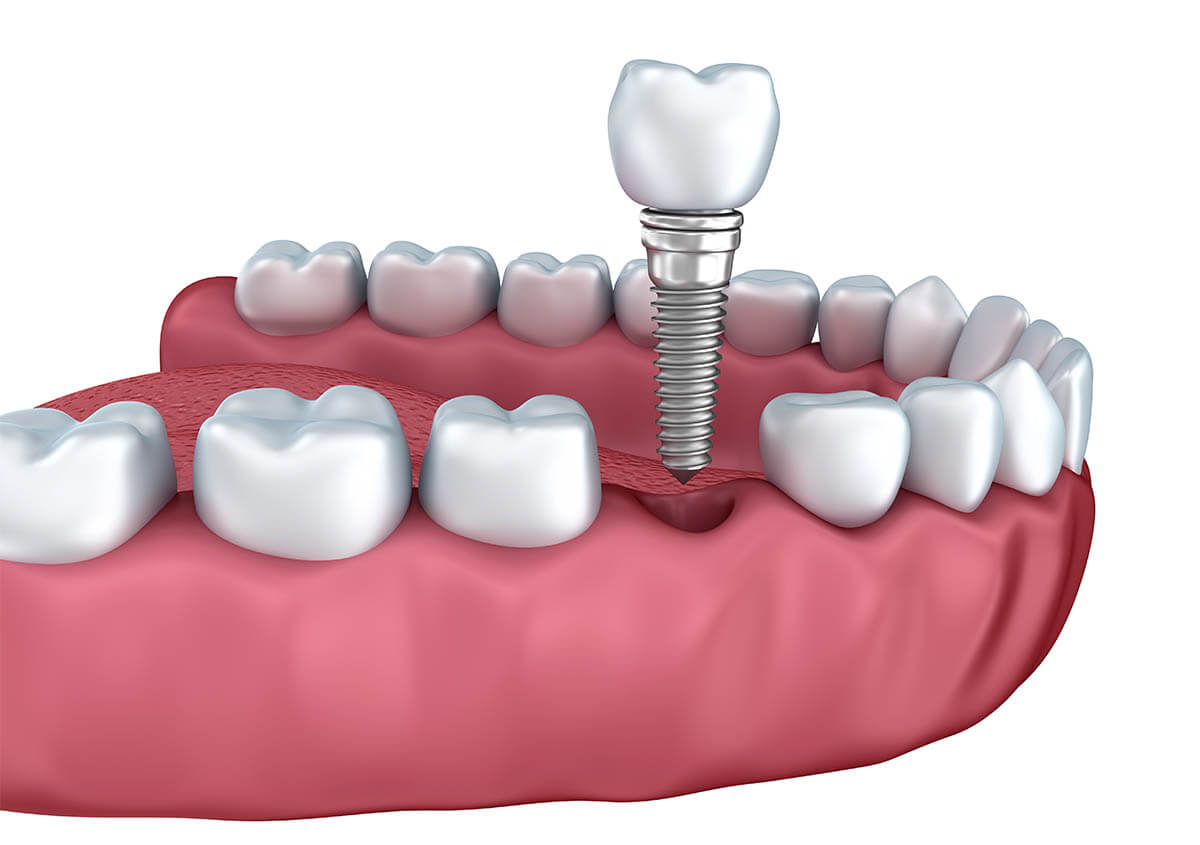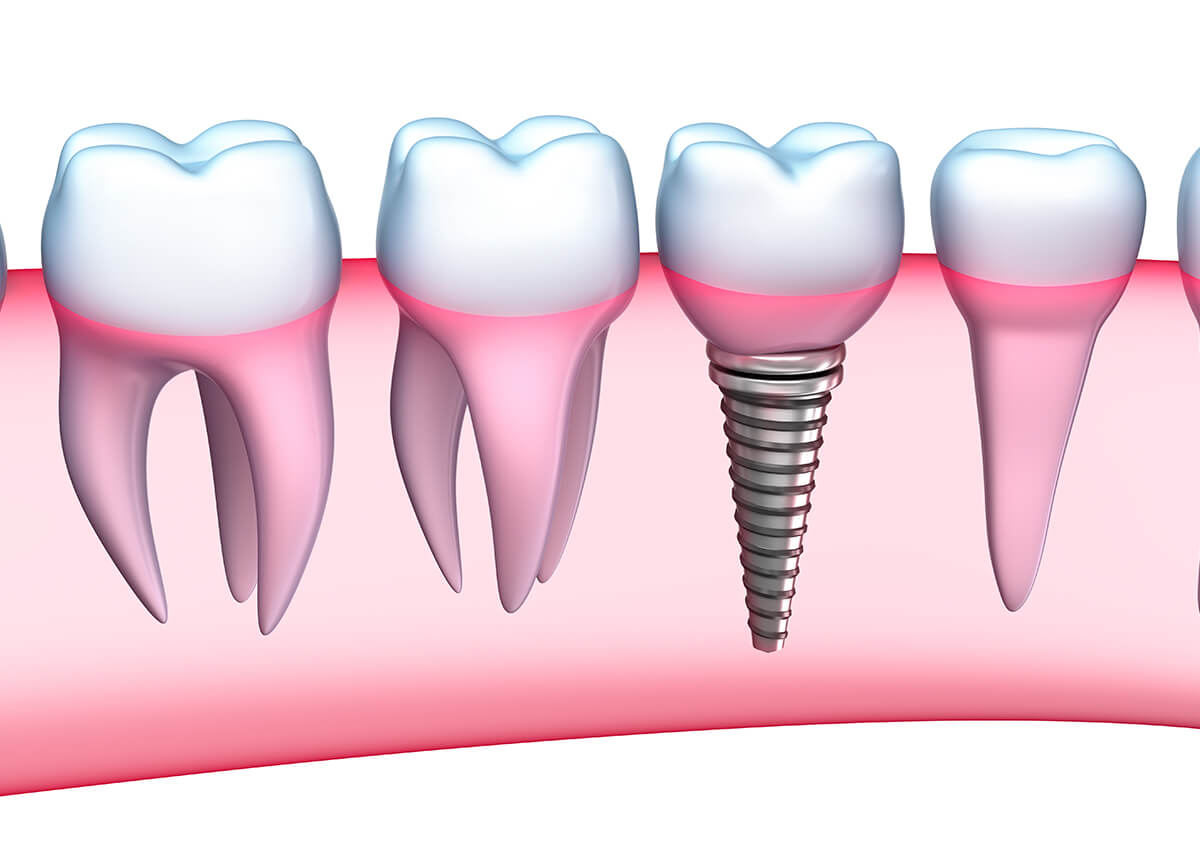From precision placement to professional guidance on care, we help you enjoy implant-retained teeth for life!
Choose your professionals wisely
The success and satisfaction that patients get from dental implants depend, at least partly, on how well each implant is placed or positioned in the jawbone by your dentist or surgeon. Our dentists use advanced technologies, such as computer-guided surgical techniques, to place each implant precisely and strategically. This characteristic is critical because the implant must heal or fully join the surrounding, supporting bone in the jaw. Generally, replacement teeth cannot be connected to the implant until there is a sufficient foundation or base for the implant to be held in place. In this manner, the implant functions as a tooth root to stabilize the replacement teeth, be it a single tooth, several teeth, or a complete set of teeth in an entire upper and lower denture.
Implant-supported teeth should last a lifetime! After all, they are designed like natural teeth. The most natural design facilitates the most natural appearance and function. Immediate placement of implants also stops or prevents the destructive process of bone loss. Due to a lack of stimulation from the teeth via chewing food and other behaviors, the bone in the jaw can shrink. This process results in all sorts of problems with speech and eating, and the lack of supporting bone can also prematurely age your face.
Are you a candidate for the “standard” in tooth replacement?
Thanks to advanced techniques and technologies, there is an excellent chance that you, too, can benefit from dental implants!
To discuss your options for treatment, call us today at (978) 881-5826. Your new smile awaits at Acton Dental Associates, conveniently located near Littleton, West Concord, Concord, Maynard, Westford, Boxborough, Stow, Harvard, Sudbury, and communities in between.




